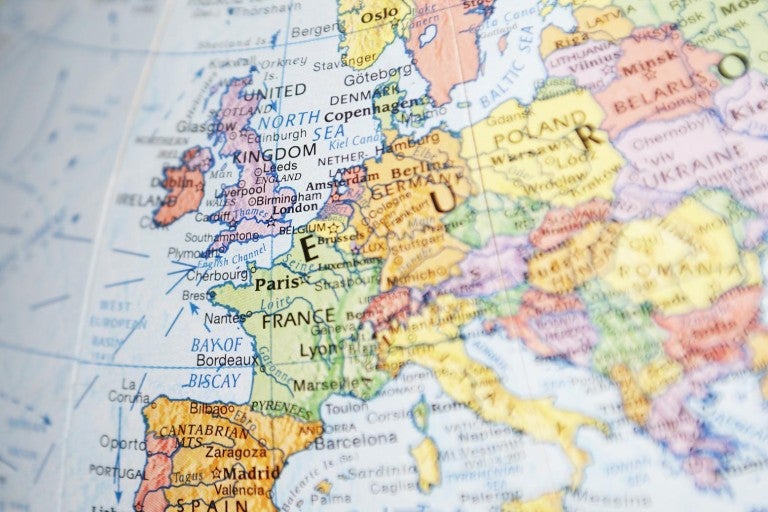July 3, 2017
This article was written by Col. (Ret.) Dr. Eran Lerman
The Islamic State is a spent force. Much of Mosul has now fallen, and the visible sense of relief expressed by the liberated residents on Eid al-Fitr was a joy to behold. The demolition of the ancient Nuri Mosque, with its famous leaning tower, was, in a sense, a suicidal statement: the place where the "Caliphate" was declared – by the man who calls himself Abu Bakr al-Baghdadi – will not fall intact to the coalition forces. As for "Baghdadi" (Ibrahim Smara'i) himself, he has vanished, and there is no way of knowing for sure whether the Russian claims about his demise are true. In any case, his "capital" in Raqqah is also under siege, and the Syrian Democratic Forces (SDF) – a largely Kurdish and highly effective element with the coalition, which now enjoys firm American support (to the dismay of the Turkish government) – have breached the perimeter of the town. For the IS leadership and what it pretended to be, the end is nigh.
This is good news. Good for humanity at large, and for the basic values that IS brutally and deliberately violated in what became an almost pornographic display of disdain for fundamental human norms. Good for regional stability. Good for Israel, and for like-minded forces in the Arab world.
And yet it is also a turning point in the struggle for Syria, or, rather, for the land once known as Syria, which is no longer a unified country and is unlikely to be one ever again. Four players now face the challenge of consolidating their gains on the ground there – once the battle with IS is finally over – and facing the others' ambitions, which are diametrically opposed to theirs.
The first are the Iranians, who are aggressively ambitious. That is the language they used themselves, following the launch of their (largely ineffectual) missiles against IS. They are more virulently anti-Israeli and anti-American than ever – with Hezbollah as their main proxy in the battlefield. And they also have a firm grip on the Syrian regime itself; they have fighters of their own in Syria; and they dominate the actions of the Shi'a "Popular Mobilization" forces (al-Khashd al-Sha'bi) on the Iraqi side of the border. What Iran has in mind is clear: the consolidation of a contiguous zone of control from their own land, via Shi'a zones in Iraq, through Syria to Lebanon, giving it a base on the Mediterranean and direct access to Israel's borders. Moreover, through control of the southern Golan Heights (on the Syrian side) they will gain access to northern Jordan, and from there the road may be short to an attempted penetration of the West Bank.
These Iranian plans pose a direct and unambiguous threat not only to Israel but also to all non-Shi’a forces in the region: hence the importance, for the U.S. and for Israel, of resolute action to prevent this from happening – and on the ground in Syria, of driving strategic wedges across this "Shi'a arc." This is the reason for the rising tensions in recent weeks, the downing of the Syrian jet fighter, the destruction of U.S. UAVs, and the lines of battle emerging around the strategic chokepoint of Tanf in southern Syria, which the Iranians need to gain if they are to build their arc, and the pro-Western forces need to hold if they are to foil it.
The second group of players consists of anti-Iranian forces in the region. This camp, in the broader scheme of things, is led by Saudi Arabia – under the active hand of Muhammad bin Salman, the King's son and now his Crown Prince as well. But the Saudis are currently busy with disciplining Qatar and fighting a long and ugly war in Yemen, and so their role in Syria is indirect. Egypt is ambivalent, and harbors some sympathy for Assad – if he can be pried loose from Iran's grip. Jordan bears much of the direct burden of supporting "moderate" rebel forces; and so does the U.S. military and intelligence presence, with small Special Forces contingents on the ground and with a joint command center in Jordan, closely coordinated with Israel. The American role is to coordinate the overall effort – and in the north, as already indicated, to support directly the SDF advances. Israel, while not directly involved in the action (beyond offering help to local elements in the Golan), is nevertheless part and parcel of this group, and has a vital stake in its success. Israeli leaders have made it very clear in recent statements that they will simply not allow Iran to build "another South Lebanon" in the Golan.
The third player, which may actually hold the balance in some places, are the non-IS rebel groups, which are nevertheless Islamist (and often quite brutal), such as Jabhat al-Nusra (by whatever new name it may now be using), a distinct al-Qaeda offshoot; as well as elements with a Muslim Brotherhood lineage. Here, the decisions which will be made by Turkey – whose support is vital to these groups – may determine whether they will help or obstruct the effort to bar Iran from building a land corridor to the Mediterranean. Erdogan's first instinct is to line up against a U.S. effort that largely relies on well-armed Kurdish forces; but he is probably just as worried about a Shi'a arc being consolidated all along Turkey's southern flank. His choice will have a major effect on the outcome: one more reason to remain engaged in conversation with Ankara, despite deep differences on a broad range of subjects.
Finally, and perhaps decisively, is Russia, which has gained a role of her own in the equation, having made a major strategic investment in September 2015. Some analysts speak of an Iranian-Russian alliance. Yet, in one profound respect there is a stark difference between the Russian and the Iranian designs for Syria. The Iranians want it as a launching pad for penetrating Jordan and ultimately the West Bank in the quest to destroy Israel. The Russians, however, have no wish to see the blood-besmirched regime, which they have done so much to save from the gallows, struck down by a powerful Israeli military response. The "daylight" between their position (which accepts the reality of occasional Israeli operations to bar the supply of weapons to Hezbollah through Syria) and that of Iran may stem from the healthy respect the Russians have, as does Assad himself, for Israeli military capabilities. They may be in a position to whisper in his ear to avoid being used by Iran in ways that would put his survival at risk. This is also the reason why Israel reacts with force to any stray shell from the Syrian side: the deterrence effect can only be maintained if there are no question marks about Israel's willingness to act.
The weeks ahead will tell who may have the upper hand in the race for the remains of Syria. American resolve (and diplomatic leverage, not least in Ankara – and Moscow, despite the long shadow of the ongoing investigations) can make a major difference. However, a failure to halt Iran's ambitions will have highly detrimental effects all around – and may well force Israel to get much more intensively involved in this terrifying war which has torn Syria apart.
Eran Lerman is the former deputy for foreign policy and international affairs at the National Security Council in the Israeli Prime Minister's Office. Prior to that, he served as director of AJC Jerusalem.


